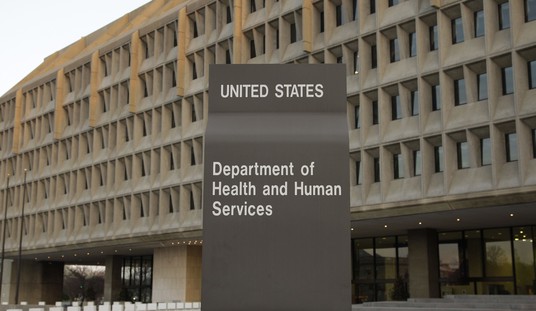Sen. Ted Cruz became the first member of Congress to “self-quarantine” after exposure to the novel coronavirus. Rep. Paul Gosar soon followed suit, both after having come into direct contact with a confirmed carrier at CPAC. Now rumblings from Capitol Hill suggest that the legislative branch might go into a full recess while the virus plays itself out over the next few weeks:
Members of Congress are becoming increasingly anxious about coronavirus, and there is growing pressure on leadership to take steps to protect lawmakers — even potentially recessing for a period of weeks — two Democratic congressional sources said Sunday.
Multiple sources said anxiety was on the rise among lawmakers as more cases are reported and the virus spreads. …
“Members are very nervous,” a senior Democratic leadership aide said. “There’s a lot of concern that members could bring it home.”
Another source said members from districts and states where the virus is spreading are also concerned about being able to remain at home to help handle the crisis.
Members plan to raise concerns with House Speaker Nancy Pelosi, D-Calif., at their weekly leadership meeting Monday afternoon, two sources said. It’s Pelosi’s decision whether to keep the House in session or make changes in the schedule.
It’s not just CPAC, either. A Georgetown church canceled services yesterday after its rector got a positive test for COVID-19, and the mayor of DC has requested that all parishioners self-quarantine for the next two weeks. That congregation includes a number of “government officials and prominent Washingtonians,” CBS News reporter Nancy Chen explained:
BREAKING: DC mayor asking everyone who attended Christ Church in Georgetown to self-quarantine for 14 days from the last time they visited. Church rector was the first DC coronavirus patient. Officials say it could be "several hundred people" who potentially interacted with him.
— Nancy Chen (@NancyChenNews) March 9, 2020
Mayor re-iterates: Anyone who visited Christ Church in Georgetown on February 24 or between February 28-March 3 self quarantine for 14 days from the last time they visited the church.
— Nancy Chen (@NancyChenNews) March 9, 2020
Mayor Bowser held a presser this morning to explain the response:
LATEST: DC Mayor Bowser says services have been paused at Christ Church Georgetown after church's rector tested positive for coronavirus.
DC Health recommends those who visited the church during select dates self-quarantine for 14 days since last visit. https://t.co/MBX67sHCVN pic.twitter.com/2x4m6zfb9M
— ABC News (@ABC) March 9, 2020
Small wonder, then, that constituents are starting to get concerned that their elected officials might bring home something other than pork on their next visit.
Congress faces two problems in defense against the coronavirus. First, the grounds are still open for public tours, which might seem a bit strange under the circumstances but isn’t really all that remarkable. Nancy Pelosi has been loathe to close the doors, NBC’s Kasie Hunt reports, and has relied on the Capitol’s official physician to make decisions on access. That’s a manageable risk, as long as grounds personnel clean thoroughly in the wake of these tours, and the contact with members is marginal at best from tours of the Capitol anyway.
The other problem that Hunt notes comes from inside the House, so to speak, as well as the Senate. The age demographic of each chamber is older than the US as a whole, much older, with a median age in the House of 57.6 years and almost certainly quite a bit older in the Senate. Not only are older Americans more susceptible to the virus, they are less likely to shake off its effects, and any member with an infection could spread it quickly in the close quarters of the Capitol.
The best process would likely be that initiated by Cruz and Gosar, which would be for individual members to remove themselves from the capitol after possible exposure. If enough members feel the need to do so, though, the normal give-and-take of Congress will become difficult to maintain. What happens if more Republicans than Democrats self-quarantine in the Senate, and the reverse in the House? It opens up the possibility for partisan mischief, although any such stunts would almost certainly backfire immensely with voters under the circumstances.
It might not be a bad idea for a short break to take place to allow for everyone’s health, especially with little on the agenda pressing after the passage of the bill funding the fight against the coronavirus. As the old saying goes, no one’s life, liberty, or property has been endangered by a congressional recess.








Join the conversation as a VIP Member